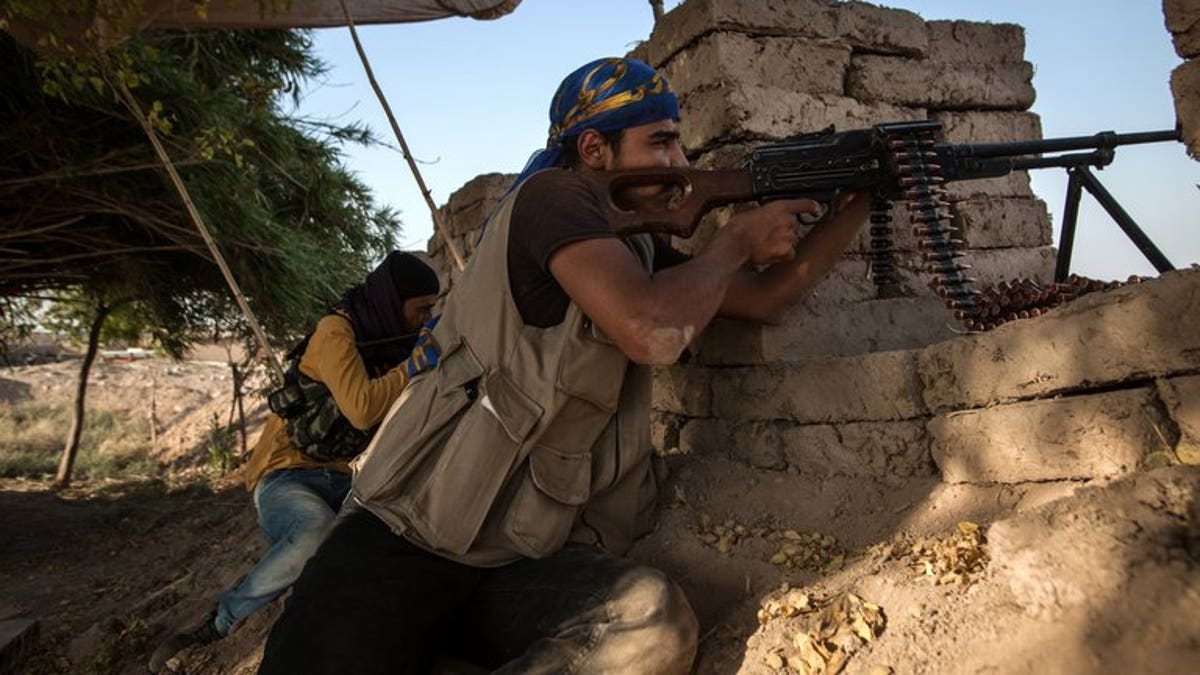
Kurdish militants take up positions in the countryside of Tirbsybya in the northeastern Syrian province of Hasakeh, on August 30, 2013. Syria's Kurds have reached an agreement with the main opposition coalition to include more members from the minority in the body, according to the Syrian opposition and the Kurdish National Council. (AFP/File)
BEIRUT (AFP) – Syria's Kurds reached an agreement with the main opposition coalition to include more members from the minority in the body, the Kurdish National Council and the opposition said Monday.
The deal reached between the KNC came after months of stalling, as the Syrian National Coalition's general assembly meeting came to a close.
"The National Coalition and the Kurdish National Council voted in an agreement on Sunday, that will bring in more Kurdish members," Coalition spokesman Louay Safi told AFP.
"We think it's important because it builds trust. We want Syria to be a country where equality and political rights are guaranteed for all," said Safi.
Leading KNC member Bahzad Ibrahim confirmed the Coalition's general assembly in Istanbul had voted to ratify the deal.
Ibrahim said the agreement will bring more Kurdish members into the SNC, but added that no decision had been reached on how many new Kurdish members the Coalition will have.
But Ibrahim described the vote as "a step forward towards guaranteeing that Syria will be more inclusive and that the opposition can better represent the Kurds".
The agreement ratified by vote said the "national identity" of Syria's Kurds would be recognised by the opposition, said Ibrahim.
Though Syria's Kurds have long been marginalised and oppressed by President Bashar al-Assad's regime, they have also been at odds with the opposition.
Frequent, fierce battles have erupted in majority Kurdish areas in northern Syria, mainly pitting Kurdish fighters against Islamist militants over whom the opposition Coalition has no control.
"While some Coalition members resisted it, the agreement is a step in the right direction. Now the KNC can deal directly with the (mainstream rebel) Supreme Military Command," said Kurdish Syrian activist Havidar.
"That might mean that better military cooperation between Kurds and non-Kurd rebels" fighting the Assad regime, Havidar added.
While the KNC includes a broad spectrum of Kurdish parties, it excludes the most powerful, the Democratic Party Union, whose fighters control many Kurdish towns and neighbourhoods in northern Syria.
For his part, Safi stressed that "this is not a legal document. It is a political agreement that demonstrates goodwill".
He added that the country's official name, the Syrian Arab Republic, remains unchanged for now, though the Kurds have been lobbying for it to be changed to the Syrian Republic.
"The Syrian people will decide on how their state is run after Assad's regime falls," Safi said.
